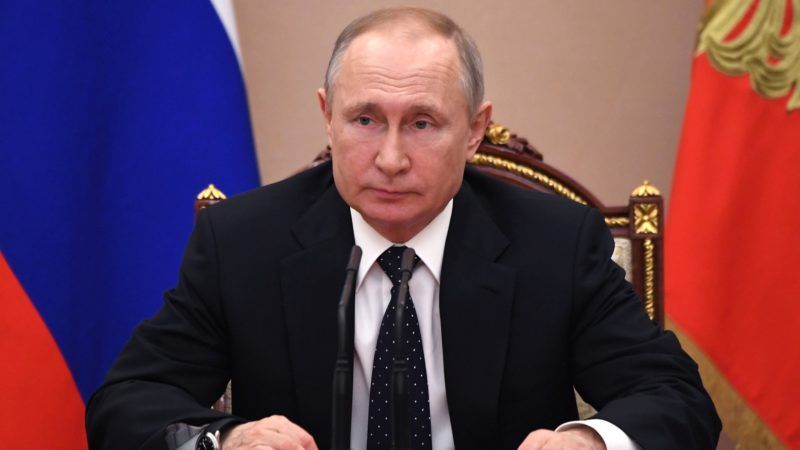Russia's State Duma Votes To Reset Putin's Current Term, Allowing His Re-election in 2024
The amendment lets Putin stay in power until 2036.

Vladimir Putin officially solidified his grasp on power last week when the State Duma, Russia's lower legislative chamber, voted unanimously to pass a constitutional amendment modifying the structure of presidential term limits. Putin will be allowed to once again run for office in 2024, when his current term is set to expire, and stay in power for two consecutive six-year terms.
The amendment was introduced by Valentina Tereshkova, former astronaut and current Duma member of the United Russia Party. She implored the Duma to reset Putin's previous presidential terms, allowing him to seek re-election without the restrictions of constitutional law.
Additionally, the amendment would give the president stronger veto power and the authority to appoint different members of the cabinet at will, without altering the government's overall structure. The president could also gain the ability to become a lifelong senator if he chooses not to run again for office.
Russian policy experts have speculated how exactly Putin will retain his authority in the coming years. Some thought that Putin's new placeholder might be former tax chief Mikhail Mishustin, who was appointed as the new prime minister in January after Dmitry Medvedev resigned. Shortly after news of the resignation broke out, Putin had proposed a constitutional amendment that would shift some power from the executive branch to the Duma.
Yet it looks like Putin decided to forego democratic formalities altogether, seizing power in the most direct way possible. The Russian constitution is written not to give power to the people but to give power to the people who already have it, prominent libertarian activist Mikhail Svetov wrote on Twitter.
The Kremlin has reached the finish line on formalizing Russia's corporate state, Yabloko Party Leader Grigori Yavlinsky wrote on Facebook. By nullifying Putin's current presidential term and altering how constitutional amendments are passed, Putin can overcome any remaining legal obstacles to permanent rule.
The proposed amendment contradicts the basic tenets of the Russian constitution, said Kirill Rogov, a senior research fellow at the Gaidar Institute for Economic Policy, in an interview with Echo of Moscow Radio. The Duma is illegally trying to implement it, he said, making Putin's move an effective coup d'etat.
A coalition consisting of Russian opposition leaders, human rights activists, and constitutional law experts submitted an appeal to the European Union asking for advice on how to move forward. The appeal's authors urged Russian citizens to publicly express their dissent towards the amendment, which would "strengthen the undemocratic vertical of power…and narrow down the autonomy of local self-government."
If Putin stays president until 2036, he will have been in power for 36 years, longer than even Stalin's rule. Russia's constitutional court continues to spurt out legal jargon designed to confuse the public, but the underlying message remains clear: Putin's autocracy has no further need to continue even the illusion of democracy.

Show Comments (43)